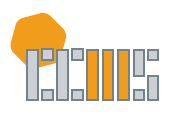Abstract / Synopsis
Ethnomathematical techniques and modelling tools allow us to examine systems taken from the real world and offer us insight into forms of mathematics performed in holistic contexts [3]. A pedagogical approach that connects a diversity of cultural forms of mathematics can be implemented by the use of ethnomodelling, a process of translation and elaboration of problems and questions taken from non-academic systems. Here, we offer examples of studies conducted in Brazil and in the United States that explore this pedagogical approach. Our goal is to broaden the discussion of possibilities for ethnomathematics and associated ethnomodelling perspectives that respect the social diversity of distinct cultural group members with guarantees for the development of understanding of the different ways of doing mathematics through dialogue and respect.
DOI
10.5642/jhummath.201602.03
Recommended Citation
Milton Rosa & Daniel C. Orey, "Humanizing Mathematics through Ethnomodelling," Journal of Humanistic Mathematics, Volume 6 Issue 2 (July 2016), pages 3-22. DOI: 10.5642/jhummath.201602.03. Available at: https://scholarship.claremont.edu/jhm/vol6/iss2/3
Included in
Bilingual, Multilingual, and Multicultural Education Commons, Curriculum and Social Inquiry Commons, Science and Mathematics Education Commons
